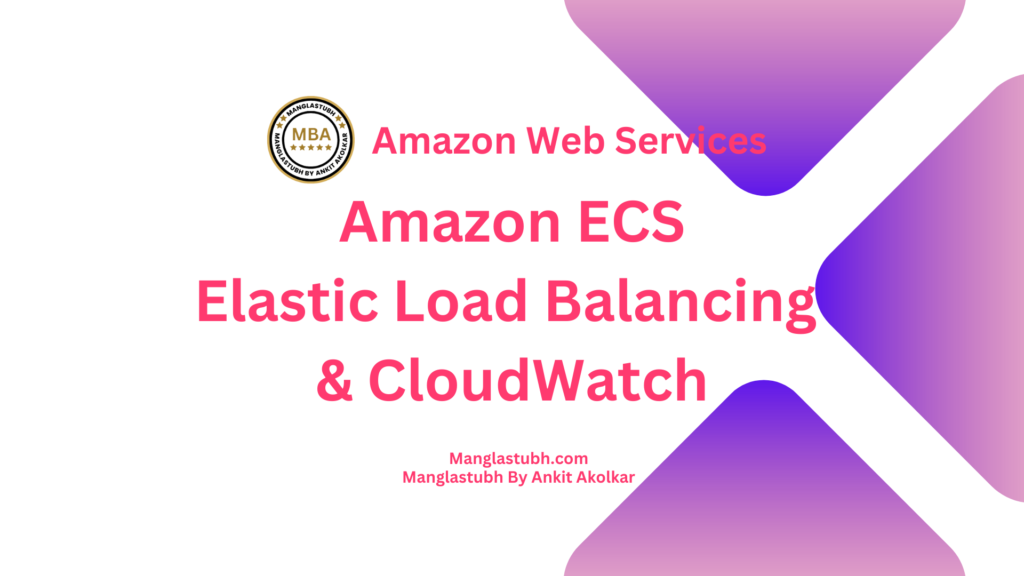Introduction
Amazon EC2 Container Service (Amazon ECS) is a managed service that makes it easy to run, schedule, and scale applications on Amazon EC2. It takes away the burden of managing complex container scheduling and runs applications according to your needs. With Amazon ECS, you can focus on developing and iterating faster.
If you are already using AWS services for your applications, then you may want to consider using their managed services instead of managing your own infrastructure. It makes things easier by allowing you to focus on your application and not on infrastructure management.
We will be using the following services in this blog:
- Amazon service EC2
- Amazon ECS
- AWS Elastic Container Service for Docker (Amazon ECS for Docker)
- Amazon Elastic Load Balancing (Amazon ELB)

What is Amazon EC2 Container Service (Amazon ECS)
Amazon EC2 Container Service is a fully managed container service for running and managing applications on Amazon Web Services (AWS). It was originally built on top of Docker technology and has been extended to support other container technologies as well.
With Amazon ECS, you can deploy and run applications that use a range of container technologies including Docker, LinuxKit, Apache Mesos, and more. You can also use Amazon ECS to run non-containerized applications such as AWS Lambda functions.
AWS ECS manages the entire life cycle of the container, from provisioning to decommissioning. It provides a container runtime environment and tools for automating common administration tasks such as managing the dependencies, logging, and monitoring your containers.
Amazon ECS: Managed Service for Containers
Amazon ECS is a managed service that makes it easy to run, schedule, and scale container-based applications on Amazon EC2. With Amazon ECS, you can focus on developing and iterating faster.
If you are already using AWS services for your applications, then you may want to consider using their managed services instead of managing your own infrastructure. It makes things easier by allowing you to focus on your application and not on infrastructure management. In this blog, we will be looking at how Amazon ECS can be used to easily manage and scale your Amazon EC2-based applications.
We will be using the following services in this blog:
- Amazon service EC2
- Amazon ECS
- Amazon-Elastic Container Service for Docker (Amazon ECS for Docker)
- Amazon Relational Database Service (Amazon RDS)
- Amazon-Elastic MapReduce Service (Amazon EMR)
- Amazon Simple Storage Service (Amazon S3)
- Amazon Elastic Compute Cloud (Amazon EC2)
- AWS Elastic Load Balancing (Amazon ELB)
- AWS CloudWatch
Amazon ECS: Deploying with Docker.
It provides built-in support for deploying Docker containers with the following services:
- AWS Elastic Container Registry (Amazon EC2)
- AWS ECS Deployment Manager
- Amazon Elastic Load Balancing
Amazon ECS for Docker: Deploy Docker-based Applications
AWS ECS for Docker is a managed service that provides a secure, scalable, and distributed container environment for running and managing applications based on Docker. With support for auto-scaling, load balancing, and high availability, you can focus on developing and iterating faster with less effort.
You can launch clusters with multiple nodes with high availability using either of the following modes:
- Mode 1 – Master-Slave mode: High availability is provided by using a master node and multiple slave nodes. The master node is responsible for coordinating the cluster and managing the application containers.
- Mode 2 – Peer-to-Peer mode: In this mode, the nodes run applications that coordinate with each other to manage the cluster state.
Amazon RDS: Managed Database Service
Amazon RDS is a managed service that offers a highly scalable, low-cost, fully managed relational database service. With Amazon RDS, you can easily set up a highly available, scalable, and reliable database. Know all the intricacies of relational databases.
Amazon EMR: Managed Hadoop Service Amazon ECS, Elastic Load Balancing & CloudWatch
Amazon Hadoop is a managed service that makes it easy to deploy, operate, and scale Apache Hadoop-based applications on Amazon Web Services. It provides a standards-based approach for managing Hadoop clusters on AWS. Using Amazon EMR, you can easily launch a cluster with a single command, and create a cluster with high availability.
Amazon S3: Managed Storage Service Amazon ECS, Elastic Load Balancing & CloudWatch
Amazon S3 is a service that provides storage that is highly scalable, durable, and cost-effective. It was originally designed for hosting data that requires high availability, scalability, and low cost of replication. Using Amazon S3, users easily set up highly available, scalable, and reliable storage without having to worry about where their data is stored.
You can set up mirrors using either of the following modes:
- Mode 1 – Master-Slave mode: High availability is provided by using a master node and multiple slave nodes. The master node is responsible for coordinating the cluster and managing the application containers.
- Mode 2 – Peer-to-Peer mode: In this mode, the nodes run applications that coordinate with each other to manage the cluster state.
Amazon ELB: Automated Web Application Load Balancer
AWS Elastic Load Balancing is a scalable, distributed web application load balancer that evenly distributes incoming traffic across multiple backend servers. Using an ELB, you can easily set up a highly available, scalable, and reliable web application load balancer.
Incoming traffic destined for a given VPC is routed to the ELB while all outgoing Internet-bound traffic from it goes out via the default route. Alternatively, you can configure an ELB so that incoming and outgoing Internet-bound packets are both sent through this one device without any modification in routing.
Amazon ECS, Elastic Load Balancing & CloudWatch. Manglastubh By Ankit Akolkar. Search on Google Free Online Courses.

Welcome to Manglastubh By Ankit Akolkar. Manglastubh website is designed and developed for all kinds of Knowledge-Based Blogs and Articles. Everyone will gain knowledge over here from this website.

